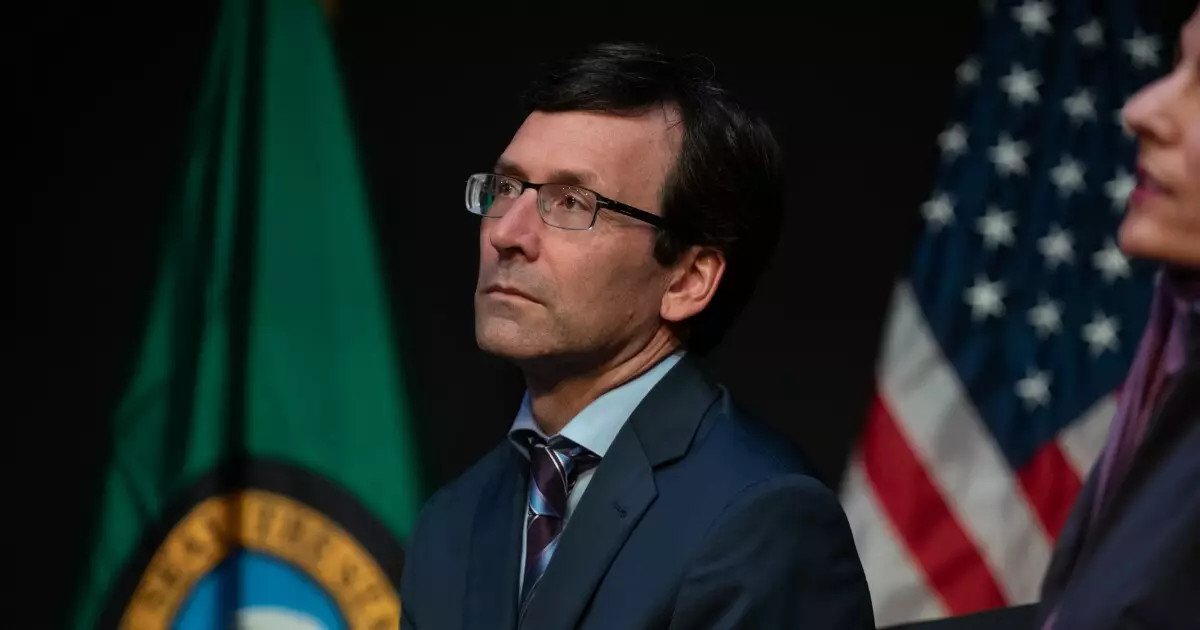Five Alarming Facts About Washington’s Budget Crisis That Demand Immediate Action

The political landscape in Washington state has reached a crucial impasse, one that could define the future of fiscal responsibility and governance for years to come. The recent confrontation between Governor Bob Ferguson and the legislature reveals a stark reality: a looming budget deficit totaling a staggering $16 billion over the next four years. This situation is not just a bump in the road; it’s akin to a five-alarm fire. Ferguson’s warning about federal funding cuts and the excessive reliance on unreliable revenue sources like wealth taxes should not be taken lightly. Such fiscal negligence could plunge essential services, like education and healthcare, into a chaotic abyss.
The sheer scale of these budget proposals, which both Governor Ferguson and previous leaders have deemed unsustainable, accentuates the need for a drastic pivot in strategy. Lawmakers, forging ahead without a clear, conservatively anchored financial framework, risk plunging both the state’s economy and its citizens into deep uncertainty. Governing requires accountability—something that seems to elude many within Washington’s political sphere.
The Illusion of Expansive Taxes
A wealth tax may sound appealing to some, presenting an opportunity for wealthy individuals to contribute more significantly to state finances. However, the practical implications are alarming. Implementing such a tax would not only be a logistical nightmare—it invites immediate legal challenges that would inevitably delay essential budget approvals. Governor Ferguson emphasized this during a press conference, stating unequivocally that heavy reliance on untested and controversial revenue sources jeopardizes the entire budgeting process.
What’s more disturbing is the notion that legislators appear willing to gamble the state’s economic stability for political expedience. It’s critical to ask: at what point do we prioritize effective governance over populist programs that, in practice, may hinder the growth and sustainability we so desperately need? Fiscal responsibility isn’t just a talking point; it’s a necessity that many lawmakers have failed to embrace.
The Fragile Nature of Federal Funding
What compounds the existing challenges is the alarming fact that approximately 28% of Washington’s budget is supported by federal dollars. This reliance creates a precarious situation, as changes at the federal level could drastically alter the financial landscape overnight. Governor Ferguson has correctly identified this instability and advocated for a defensive approach in preparing for potential cuts. The urgency is palpable; as federal funding becomes less predictable, it’s known that such volatility can lead to devastating impacts on public services—something neither the governor nor the legislators appear equipped to address adequately.
The statistic that $43 billion per biennium flows from federal resources, including significant allocations for Medicaid and education, illustrates the state’s over-dependence on external financial lifelines. This reality creates an inevitable vulnerability that exposes the sheer irresponsibility perpetuated by naive lawmakers inclined to expand their budgets without regard for the larger economic picture. Real leaders would strive to create a more self-sufficient budget that does not collapse at the slightest hint of federal change.
Preserving the Rainy-Day Fund
One of the most rational approaches to managing the state’s precarious financial situation is to protect the rainy-day fund. Ferguson’s insistence on maintaining this reserve is not mere political posturing; it is a strategic necessity to shield Washington from unforeseen crises and to retain lower borrowing costs. A healthy rainy-day fund speaks to prudent management that affirms a readiness for future challenges rather than capitulating to immediate pressure for spending.
In this instance, the contrast between fiscal conservatism and reckless spending couldn’t be clearer. Building reserves provides a buffer against economic turbulence, which is crucial for state health and sustainability. Depleting these reserves would lead to a degradation of Washington’s illustrious credit ratings, thereby increasing costs for necessary infrastructure, which ultimately serves all citizens.
The Path Forward
Confronting this budget crisis isn’t merely about slashing expenses or raising taxes; it demands a comprehensive reevaluation of governing philosophy. Governor Ferguson’s call for a budget built on realistic projections must resonate deeply with lawmakers. The importance of balancing essential services with fiscal discipline cannot be overstated, and it is high time that centrist leaders take a stand against the habitual overreach that has characterized past legislative cycles.
As discussions around the budget continue, Washington’s leaders must approach the conversation with urgency and practicality, ensuring that every decision made is rooted in a long-term vision for the state’s well-being. Ignoring the pressing issues at hand would not only threaten the livelihoods of many Washington residents, but also diminish the trust that has historically been associated with state governance. The time for authoritative, focused leadership is now—anything less would be a disservice to the citizens of Washington.





